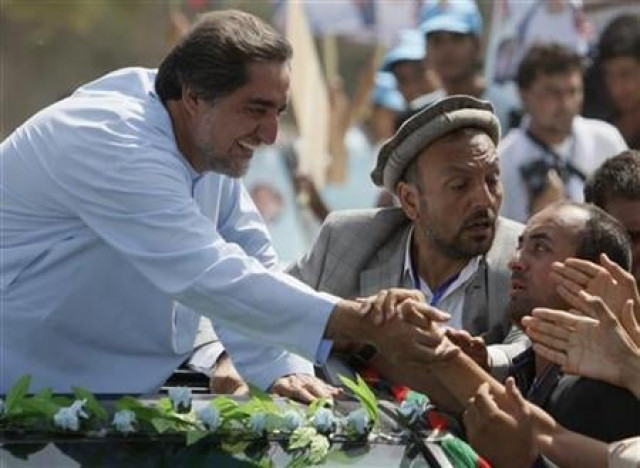
The survey was carried out by Democracy International and Afghanistan’s Tolo TV channel, which included the opinion of more than 2,500 Afghans across at least 115 districts in the country’s 34 provinces. It projected Abdullah as the leading candidate with 31% support.
Former finance minister Dr Ashraf Ghani Ahmadzai was the runner-up with 25% support, while President Hamid Karzai’s brother, Abdul Qayyum Karzai, was the third most popular candidate with 13% of voters in favour of him. Former mujahideen leader Abdul Rab Rasul Sayyaf trails with 10% popularity, whereas former foreign minister Dr Zalmai Rasoul found himself in fifth place.

The poll is being widely criticised with some pressing the country’s Independent Election Commission (IEC) to ban surveys because “they disregard the principle of impartiality and some of the statistics provided are doctored.”
Presidential hopeful Gul Agha Sherzai, who has served as governor of Kandahar and Nangarhar, said the survey was ‘fake’. Sherzai’s first running mate Sayed Hosayn Alemi-Balkhi claimed the recent surveys by some media outlets “created confusion among people” and urged them “not to support a specific candidate.”
Many have been taken aback since the election panel has not yet allowed candidates to embark on election campaigns. None of the hopefuls have issued their manifestos either. The IEC has set February 2 for candidates to launch campaigns, but has warned them of judicial action if they are found campaigning before the scheduled date.

Amid the controversy over the Democracy International poll, Afghanistan’s Electoral Complaints Commission (ECC) has forwarded allegations against some presidential and provincial council’s candidates to judicial bodies on charges of human rights violations.
The ECC secretary said most of the complaints, which require an investigation, have been sent to the judiciary. “Judicial bodies can take decisions about rights abuses by some candidates,” ECC spokesperson Nader Mohseni told the media this month. Rights groups had earlier expressed serious concerns over the inclusion of some former warlords, guilty of human rights violations, in the bid for the presidency.
To ensure elections are conducted in a ‘free and fair environment,’ the IEC has also reportedly invited foreign observers to monitor the elections, considering the irregularities – widespread fraud and intimidating voters – during the 2009 elections.
IEC Secretariat chief Ziaul Haq Amarkhail said, “The commission has officially sent invitations to international observers to monitor the upcoming elections after some candidates asked for observers to monitor any rigging. The IEC has also asked candidates to submit their lists of preferred observers so that permits can be issued.”
Some international organisations as well as the European Union have shown interest in monitoring the 2014 elections. Officials say observers will be allowed to visit polling booths.
President Karzai’s political opponents allege he is “attempting to sideline the elections by dragging his feet over signing a security pact with the United States.” The pact would allow the Americans to retain some presence beyond the 2014 withdrawal of international security forces.
National Coalition of Afghanistan leader Fazal Rahman Orya criticised Karzai and accused him of “not being politically interested in holding the election.” He told reporters in Kabul the president “had been bargaining with the US for his personal interests and has completely forgotten his responsibilities and obligation to ensure free and transparent elections in the country.”
The 2014 elections will mark the first democratic transition of presidential power in the history of Afghanistan. It will prove to be a test for the country’s leadership, especially at a time when international troops accelerate their drawdown.
Published in The Express Tribune, December 28th, 2013.

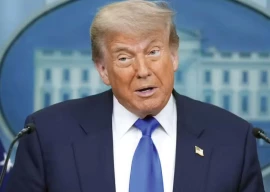




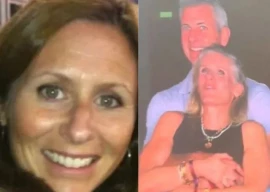
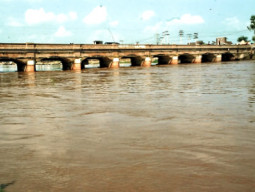
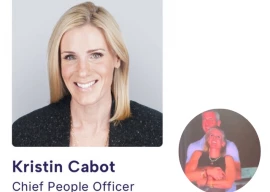

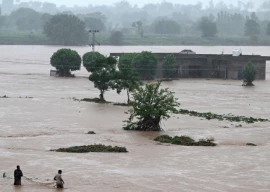
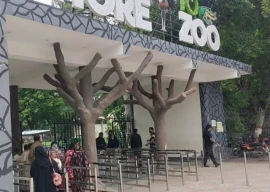






COMMENTS
Comments are moderated and generally will be posted if they are on-topic and not abusive.
For more information, please see our Comments FAQ